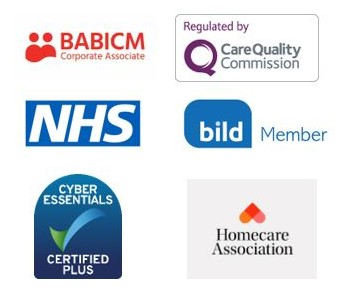Empowering U become a Patron of the Wolves Foundation, the official charity of Wolverhampton Wanderers F.C.
2024 marks 10 years since Empowering U was founded to provide industry-leading care services for individuals living with complex needs and case management services for those recovering from serious injuries, across England and Wales. As part of their 10th anniversary celebrations, Empowering U is proud to announce its new role as a Pack Patron of the Wolves Foundation, the official charity of Wolverhampton Wanderers F.C.
Empowering U, a leading provider of care services for individuals with complex needs, those with learning disabilities and Autism, and case management services, was established in June 2014 in the heart of Wolverhampton at their Willenhall branch. The Jakhu family, have been involved with care in Wolverhampton for over 30 years, supporting thousands of people through their sister provider, Atholl House Nursing Home, located in Compton.

The organisation has been dedicated to enhancing the lives of its service users, a mission that aligns perfectly with the Wolves Foundation’s efforts to improve physical and mental health, personal development and create better life opportunities across Wolverhampton.
Gulshan Jakhu, Group Commercial Director of Empowering U, expressed his excitement about the partnership:
“We are proud and delighted to announce our collaboration with the Wolves Foundation as a Pack Patron. Our family and wider group are excited to be actively involved in supporting the Wolves Foundation’s initiatives across the city. Our teams are looking forward to fully engaging in Wolves Foundation projects and working hand in hand with the community to bring about positive change. Together, we are committed to creating opportunities, promoting inclusivity, and changing lives for the better.”
Saroj Jakhu, Managing Director of Empowering U, also shared his thoughts on the meaningful collaboration:
“Embracing my Wolverhampton heritage, it is a tremendous privilege for my family and I to take on the role of a Patron for the foundation. Drawing on my 30-plus year career in care, and passion for the Wolves, I am honoured to stand behind their mission and play a role in the fantastic work they do. Our partnership with the Wolves Foundation is a testament to our shared commitment in supporting our local community.”
The Wolves Foundation’s focus on disability sports through Wolves Disability F.C., dementia support with Molineux Memories, and other initiatives to support the local community such as the Head 4 Health Campaign resonates deeply with Empowering U’s core values. This patronage represents more than just a corporate partnership, it is a family-driven commitment to making a meaningful impact in the community. The Jakhu family has long supported initiatives that align with their ethos of care and compassion, making this partnership a perfect match.
Kerion Ansell, Business Development Manager for the Wolves Foundation, welcomed the collaboration;
“Having worked with the Jakhu family and the wider team at Empowering U over the last few years, it gives me great pleasure to welcome them on board as Patrons of Wolves Foundation. Supporting community is in the DNA of the Jakhu Family; their core values are completely in tune with our own, and like us, they enrich the lives of so many on a daily basis. Bringing both entities together is a huge step forward, and we’re delighted to have them with us, creating opportunities and changing lives.”
As the Jakhu family and Empowering U step into this new role, they are excited to work alongside the Wolves Foundation in their shared goal of empowering individuals and strengthening the community. Through this partnership, Empowering U aims to contribute to the Foundation’s efforts in creating lasting change, fostering inclusivity, and enhancing the quality of life for those most in need.
This patronage marks a significant chapter in Empowering U’s journey, reflecting both their growth over the past decade and their ongoing commitment to the local community. The Jakhu family and Empowering U are honoured to support the Wolves Foundation and look forward to the meaningful work they will accomplish together in the years to come.











